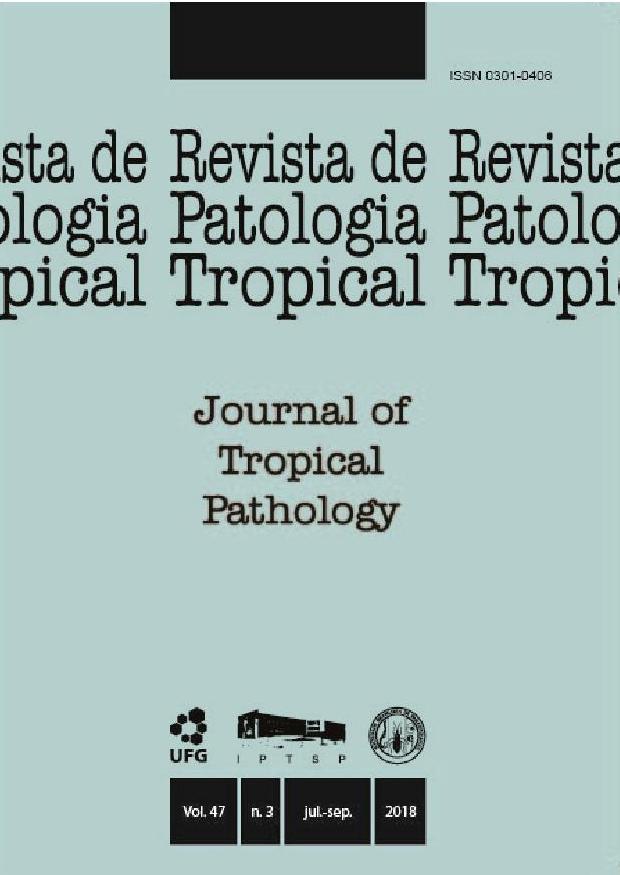MESENTERIC ISCHEMIA AS A CAUSE OF EARLY DEATH AMONG MICE INFECTED BY Schistosoma mansoni
DOI:
https://doi.org/10.5216/rpt.v47i3.55269Resumo
Laboratory maintenance of the Schistosoma mansoni cycle is necessary for developing studies regarding the diagnosis, treatment and control of schistosomiasis. Within this perspective, it is paramount that mice infected by the parasite should present a minimum survival of six months. However, between October 2016 and May 2017, early deaths were observed among
infected animals kept in the vivarium of the Schistosomiasis Reference Service of IAMFIOCRUZ.
Therefore, the purpose of the present study was to present the results obtained
after investigating the main cause of death among these animals. To achieve this, animals that died or that needed to be euthanized due to clinical distress caused by parasite infection were necropsied to investigate the cause of death and clinical condition. Fragments from the intestines, mesenteric vessels and livers were removed and were subjected to histopathological studies. In addition, mouse feces were collected and analyzed using the hydrogen peroxide
reaction to detect occult blood. Over an eight-month period, 70 deaths were noted. Forty two animals presented mesenteric ischemia, a vascular insufficiency syndrome that causes a reduction in the nutrient supply to the intestinal viscera. There is, therefore, a need to reduce the infective parasite load in mice to increase their survival, reduce distress caused by the infection
and ensure maintenance of the S. mansoni cycle, thus enabling continuity of scientific studies on this parasitosis.
Downloads
Downloads
Publicado
Como Citar
Edição
Seção
Licença
The manuscript submission must be accompanied by a letter signed by all authors stating their full name and email address, confirming that the manuscript or part of it has not been published or is under consideration for publication elsewhere, and agreeing to transfer copyright in all media and formats for Journal of Tropical Pathology.

